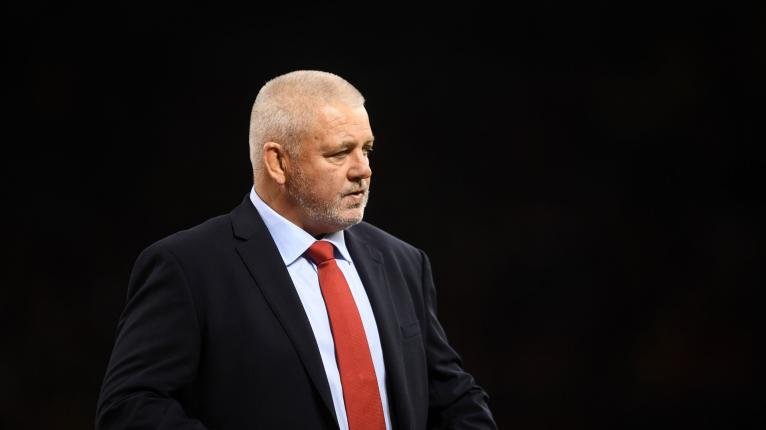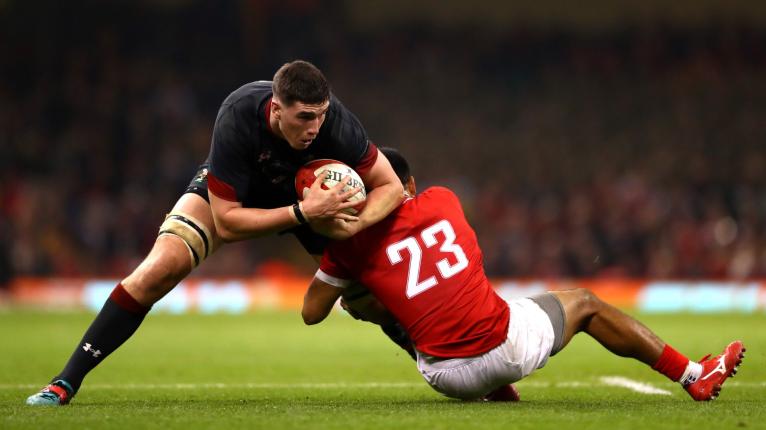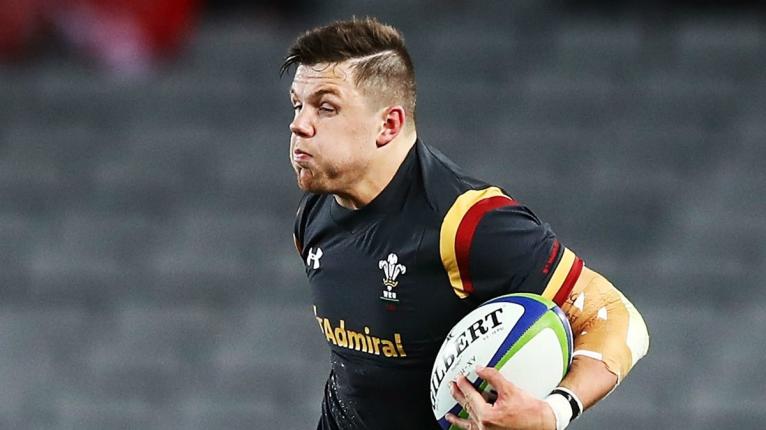Multiple Welshmen facing their World Cup endgame as Gatland's depth charts deepen

Warren Gatland was coy when asked if his current squad was the strongest of his Wales reign ahead of their 10-try defeat of Tonga. “I guess it probably is,” came the head coach’s response.
He had been a tad more bold just over a week previously when he told the 23 players selected to face Australia that they constituted the most robust matchday squad of his decade in charge.
In light of a first triumph over the Wallabies in 10 years and a comprehensive victory against Tonga, Wales will welcome South Africa back to Cardiff next weekend on an eight-game winning run, targeting a November clean sweep. It’s becoming increasingly difficult not to get swept up by the goodwill swirling around the Welsh national team.
Wales had previously struggled against tier two opposition in November under Gatland. In the 10 years since the Kiwi coach took charge his side has lost to Samoa, drawn with Fiji and needed a last-minute drop goal to beat Japan in what is supposed to be their easiest assignment of the autumn series.
Four of their six November wins against tier two teams prior to Saturday, meanwhile, had been secured by seven points or less.
Continue reading below…
So, that Gatland was able to make 14 changes to the side that beat Australia and still watch the second string secure Wales’ biggest win since a 72-18 defeat of Japan at the 2007 Rugby World Cup is a big positive. That the bench had such an impact, moreover, highlights the depth of quality at his disposal.
Gatland and his coaching panel have been wise over the last 18 months, using the absence of front-line players due to British and Irish Lions commitments, rest or injuries to blood a new wave of talent.
Since Wales departed on their 2017 summer tour, 22 players have been handed Test debuts. In that same time period, England have blooded 19 players – albeit 10 in the first Test of their 2017 tour of Argentina – and Ireland 16.
What Wales have done well is to retain those players in and around the squad, building competition and a number of them – Seb Davies, Steff Evans, Aaron Wainwright, Owen Watkin and Tomos Williams – were to the fore as Tonga were seen off in Cardiff.
Shaun Edwards will not have been pleased with the drop of in intensity in the 20 minutes before and just after half-time on Saturday, but the confidence and composure of those in black ensured that Wales never panicked. This is a group that is growing together while winning.

However, with competition comes disappointment and as thoughts drift beyond the visit of the Springboks towards next year’s Rugby World Cup, not everyone will be able to squeeze onto the flight to Japan.
Nowhere will be calls be as close as in the second- and back-rows, where Davies’ versatility could prove pivotal as Gatland attempts to pick a 31-man squad able to cope with injuries and a packed schedule.
Four years ago five locks and six back-rows were named in the original World Cup squad, but the number of second-rows may well reduce to four this time around if Gatland opts to take more than two fly-halves.
In that scenario, taking a player who can operate in multiple positions is a huge positive. Saturday’s start at number eight – his second at Test level – means that Davies has made more appearances for Wales in the back-row (four) than in his favoured position, lock (three).
You would not have known he was playing out of position, though, as he used his considerable frame to punch holes in the Tongan defence and the handling skills he picked up as a young centre to keep attacks moving forward.

If Gatland decides to use the height of Adam Beard against Australia next September as he did last weekend then Davies could find himself in a battle with Cory Hill and Aaron Shingler for two seats on the long-haul flight to Japan.
Hill’s leadership experience – he acted as co-captain on the tour of the United States and Argentina – could well give him an edge, leaving Shingler as the odd man out. That would be harsh on the Scarlets player but Davies can cover lock, blindside and number eight, providing Gatland with valuable versatility.
It would also leave Wainwright, a constant menace on Saturday, Josh Navidi, James Davies and Ollie Griffiths watching on from home next September.
Dan Biggar needed a performance against Tonga having slipped below Gareth Anscombe in the pecking order at 10, and the Northampton playmaker duly delivered a man-of-the-match display.
Speaking to Biggar ahead of this season, he baulked at the suggestion that his move to Franklin’s Gardens had come at a difficult time with a World Cup on the horizon. He clearly relishes his new role within the squad and got the Welsh attack purring after a stuttering second quarter.

Rhys Patchell, who scored a scintillating solo try after replacing Biggar with an hour gone, and Anscombe offer something different to the Northampton man, a threat with ball in hand. But considering they also offer cover at full-back it is likely all three will make the World Cup squad.
Elsewhere in the backline, Watkin – long earmarked as a Test star – impressed in a Wales shirt again, stealing possession on two occasions and linking well in attack.
Gatland selected three centres for both the 2011 and 2015 World Cups, so with Hadleigh Parkes and Jonathan Davies looking nailed on as his first-choice pairing it could come down to a choice between Watkin, Ospreys team-mate Scott Williams and Tyler Morgan for the trip to Japan.
Williams appeared in both tournaments in New Zealand and England, and has been a stalwart for Gatland since his debut in 2011, but a hamstring injury has opened the door for Watkin.
The battle for a back-three place, meanwhile, is almost as intense as that in the back-row. Liam Williams scored twice against Tonga and barring injury or a shock of seismic proportions he will board the plane to Japan.

However, things might not be so straightforward for the other try-scoring wing on Saturday, Steff Evans.
An injury picked up against the Springboks in Washington last summer, and a subsequent dip in form at the Scarlets has contributed to him slipping down the pecking order for Wales.
The main beneficiary has been Evans’ school friend and former Scarlets academy colleague Josh Adams, who Gatland named as his man of the match against Australia.
Wales took five back-three players for both the 2011 and 2015 World Cups. Leigh Halfpenny, George North and Liam Williams should make the trip, which would leave Adams, Evans, Hallam Amos, Jonah Holmes and potentially Owen Lane in contention for just two spots.
It was timely therefore that Evans provided a smart finish to score the try that broke Tonga’s resolve, and edged Wales back into a decisive lead.
We will get an insight into what it has done for his World Cup hopes when Gatland names his team to face South Africa on Thursday.














































